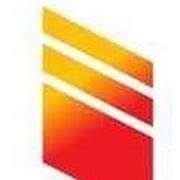Banks should be more transparent on credit card annual fees: CASE
SINGAPORE: Singapore's consumer watchdog is urging banks to be more transparent on credit card annual fees. While waivers are granted quite readily, the Consumers Association of Singapore (CASE) said not enough cardholders are aware of this.CASE is also calling on consumers to be proactive when it comes to understanding their credit card terms.CASE is also calling on consumers to be proactive when it comes to understanding their credit card terms.
There are more than than 9.6 million credit cards in circulation in Singapore as of October 2015, according to Monetary Authority of Singapore statistics. However, there are only 1.6 million credit card holders as of September 2015, according to Credit Bureau Singapore. This works out to an average of six cards per credit cardholder. Yet, a recent study on credit card satisfaction by research firm J.D. Power showed that more than 80 per cent of credit card customers do not fully understand their card terms.
Citing fees as an example, about one-third of customers were found to have paid an annual fee on their cards, while most of the rest had their fees waived or reversed in the past year. Industry-watchers said there should be better clarity on this.
"Waiver of the annual fee is a very important consideration, especially when the fee is very high compared to other cards, or when the cost of the annual fee is greater than the rewards or cashback that can be earned from using the card," said Ms Grace Cheng, co-founder and editor-in-chief of GET.com. "Most cardholders would not like to pay the annual fee, especially if they use the card regularly. And cardholders who do not request for the waiver are either too busy to request for one as they find it a hassle, or they're not even aware they can request for the fee waiver."
There are a few cards that do not have annual fees attached to them. For the majority, however, the fees vary. For example, the POSB Everyday Card and UOB One Card have a fee of S$128.40, while the OCBC 365 Card charges S$192.60 after when the automatic waiver ends.
The more exclusive cards tend to have higher annual fees. The American Express Centurion Card - which is by invitation only - charges an annual fee of almost S$7,490.
Banks said the annual fee is used to cover the cost of card benefits. Most cards are free for an initial period, but after that, card issuers may grant waivers on request. Banks also said that the decision to waive the annual fee is on a "case-by-case" basis, depending on factors such as card spend, bill payments and the number of cards the customer has with the issuing bank.
"This is an income for the card issuing bank and it cannot be given across the board," said Mrs Ong-Ang Ai Boon, director of the Association of Banks in Singapore. "If (the waiver is given to all cardholders), then the bank would have to say, 'I don't want to earn the income, and it might as well be across the board a free card for everybody to use'. That is not the case. This is an exception on a goodwill basis, a commercial decision on a case-by-case basis."
Still, CASE urged the banks for more transparency around the terms under which the annual fee would be waived.
"If they're willing to waive the fee on a case-by-case basis, they should make it clear when the consumer applies for the card," said Mr Seah Seng Choon, executive director of CASE. "So that the consumer is aware that if they're not willing to continue with the payment of membership fee, the bank would consider waiving it.
"It would be good for transparency, good for corporate social responsibility, if the bank is forthcoming, upfront, and discloses such information, instead of waiting for consumers to find it out from other sources, friends, colleagues, and so on."
Banks already generate income from credit card transactions - the annual fee is an additional revenue stream, said CASE. It added that waiving it altogether would help boost overall competitiveness among banks, with card issuers vying for limited wallet space and as new payment methods enter the fray.
